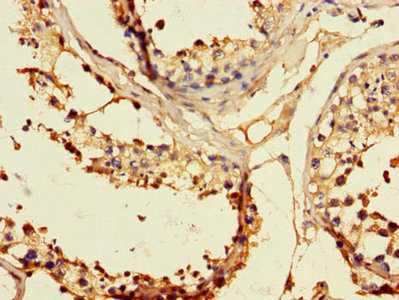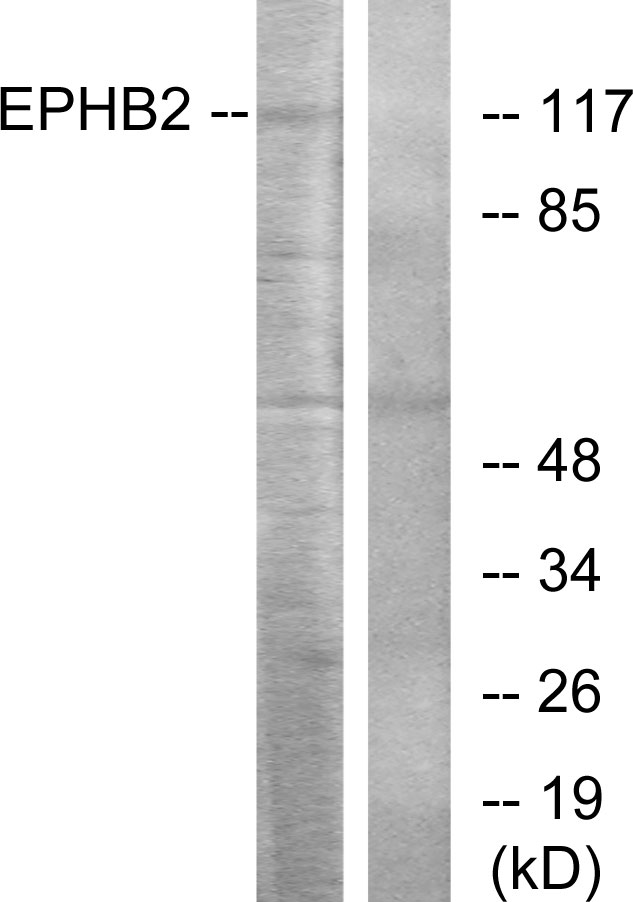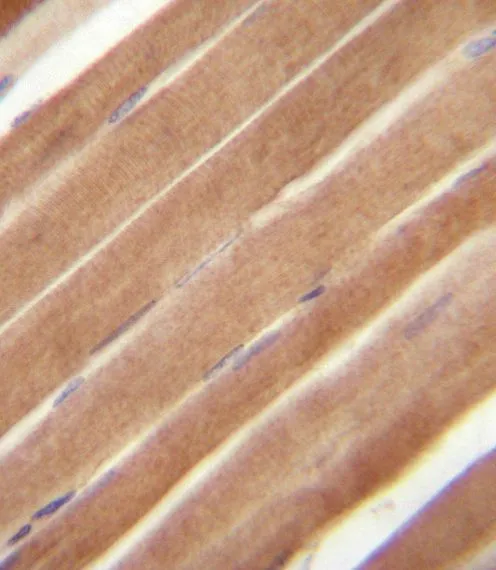![ICC/IF analysis of HeLa (left) and HepG2 (right) cells using GTX83038 EphB2 antibody [2D12C6]. Green : EphB2 Blue: DRAQ5 fluorescent DNA dye Red: Actin filaments ICC/IF analysis of HeLa (left) and HepG2 (right) cells using GTX83038 EphB2 antibody [2D12C6]. Green : EphB2 Blue: DRAQ5 fluorescent DNA dye Red: Actin filaments](https://www.genetex.com/upload/website/prouct_img/normal/GTX83038/GTX83038_20170912_ICCIF_w_23061322_783.webp)
ICC/IF analysis of HeLa (left) and HepG2 (right) cells using GTX83038 EphB2 antibody [2D12C6]. Green : EphB2 Blue: DRAQ5 fluorescent DNA dye Red: Actin filaments
EphB2 antibody [2D12C6]
GTX83038
ApplicationsImmunoFluorescence, Western Blot, ELISA, ImmunoCytoChemistry
Product group Antibodies
ReactivityHuman
TargetEPHB2
Overview
- SupplierGeneTex
- Product NameEphB2 antibody [2D12C6]
- Delivery Days Customer9
- Application Supplier NoteWB: 1/500 - 1/2000. ICC/IF: 1/200 - 1/1000. ELISA: 1/10000. *Optimal dilutions/concentrations should be determined by the researcher.Not tested in other applications.
- ApplicationsImmunoFluorescence, Western Blot, ELISA, ImmunoCytoChemistry
- CertificationResearch Use Only
- ClonalityMonoclonal
- Clone ID2D12C6
- ConjugateUnconjugated
- Gene ID2048
- Target nameEPHB2
- Target descriptionEPH receptor B2
- Target synonymsBDPLT22, CAPB, DRT, EK5, EPHT3, ERK, Hek5, PCBC, Tyro5, ephrin type-B receptor 2, EPH-like kinase 5, developmentally-regulated Eph-related tyrosine kinase, elk-related tyrosine kinase, eph tyrosine kinase 3, protein-tyrosine kinase HEK5, renal carcinoma antigen NY-REN-47, tyrosine-protein kinase TYRO5, tyrosine-protein kinase receptor EPH-3
- HostMouse
- IsotypeIgG2b
- Protein IDP29323
- Protein NameEphrin type-B receptor 2
- Scientific DescriptionThis gene encodes a member of the Eph receptor family of receptor tyrosine kinase transmembrane glycoproteins. These receptors are composed of an N-terminal glycosylated ligand-binding domain, a transmembrane region and an intracellular kinase domain. They bind ligands called ephrins and are involved in diverse cellular processes including motility, division, and differentiation. A distinguishing characteristic of Eph-ephrin signaling is that both receptors and ligands are competent to transduce a signaling cascade, resulting in bidirectional signaling. This protein belongs to a subgroup of the Eph receptors called EphB. Proteins of this subgroup are distinguished from other members of the family by sequence homology and preferential binding affinity for membrane-bound ephrin-B ligands. Allelic variants are associated with prostate and brain cancer susceptibility. Alternative splicing results in multiple transcript variants. [provided by RefSeq, May 2015]
- ReactivityHuman
- Storage Instruction-20°C or -80°C,2°C to 8°C
- UNSPSC41116161

![WB analysis of truncated EphB2 recombinant protein (1) and extracellular EphB2(aa19-476)-hIgGFc transfected CHO-K1 cell lysate(2) using GTX83038 EphB2 antibody [2D12C6]. WB analysis of truncated EphB2 recombinant protein (1) and extracellular EphB2(aa19-476)-hIgGFc transfected CHO-K1 cell lysate(2) using GTX83038 EphB2 antibody [2D12C6].](https://www.genetex.com/upload/website/prouct_img/normal/GTX83038/GTX83038_20170912_WB_w_23061322_406.webp)







